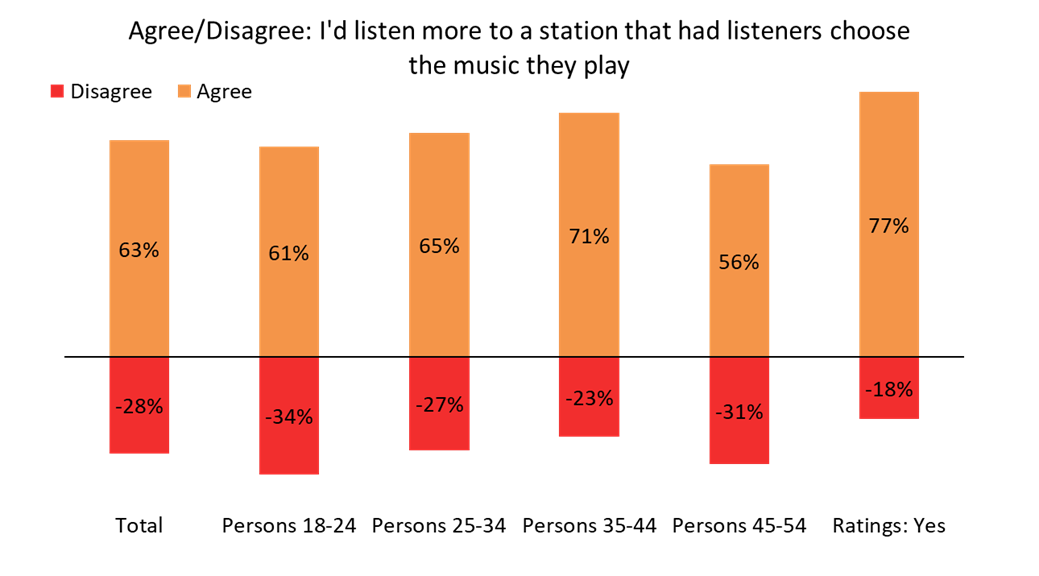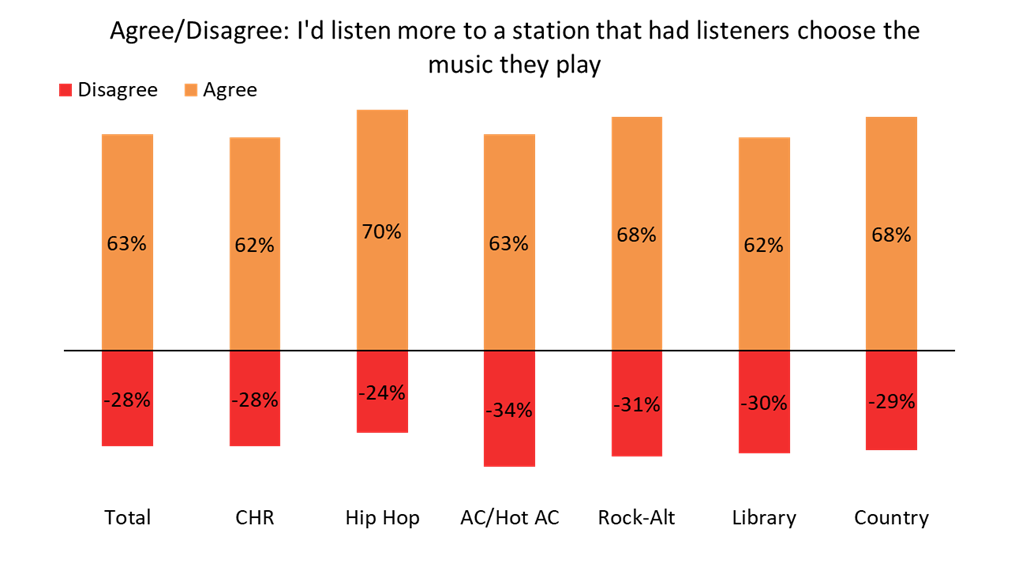63% Would Listen More to a Station That …

We’re getting emails still from folks catching up on sessions they missed during the All Access Audio Summit two weeks ago. The great thing about virtual events birthed by the pandemic is that you can watch recordings of sessions days or weeks later. The content from the session that Carolyn Gilbert and I did on opening day of the conference lives on at allaccessaudiosummit.com.
Our presentation included insights from three studies: our Ratings Prospects Study 17, the longitudinal daily tracking we undertook at the beginning of the pandemic and, realizing we had a few questions we couldn’t answer from those studies, we bought one of our own NuVoodoo ASAP studies. For clients, ASAP studies are focused, tactical perceptual studies with 300 respondents and a 10-minute interview (that we can complete for under $10,000). We went a little overboard on the one for the presentation: it’s 1100 interviews among adults 18-54 nationwide
We shared data from a panel of agree/disagree statements. One of the statements for respondents was “I’d listen more to a station that had listeners choose the music they play.” In the presentation we showed the numbers broken out by demo and the 16% of the sample we identified as likely to participate in PPM, labeled “Ratings: Yes.” The data show strong majority support for the concept. As Carolyn noted in the presentation, “Fact is, most stations in the top markets DO have their listeners choosing the music. You do it with your callout. Maybe you should tout that?”

A few of the emails we’ve received following up on the presentation asked if the numbers supporting listeners being involved in choosing the music varied strongly by format preference. With 1100 respondents we’ve had to combine some format constituencies: AC and Hot AC P1’s, Rock and Alternative P1’s, and P1’s for Classic Rock, Classic Hits, Variety Hits, etc. – labeled “Library” (since they’re all “library” formats playing no current music).

Across the six format groupings, the numbers are strikingly consistent: between 62% and 70% agreed they’d listen more to a station where the listeners chose the music. If they only knew the truth: that radio stations obsess over their whims and preferences. PD’s spend hours every day generating the music logs for their stations, working to make every quarter hour as good as it possibly can be, given the competing interests of rotations, vertical and horizontal replays, artist separation, sound coding and the like.
Additional hours are spent every week reviewing research and other intel on current music and making adjustments to current and recurrent categories. Hours are spent on some sort of regular basis massaging the library, reviewing Mediabase analyses of competitors and similarly-formatted stations in other markets. And, there can be days of work associated with reworking categories after a library test.
Yet listeners usually hear about none of these efforts being expended on their behalf. They remain in the dark about how stations select music. And because radio never talks about it, listeners don’t recognize the value they get from the huge effort involved in choosing and scheduling the music.
We’re strong advocates of building a public face for the fact that you do involve listeners in your music selection process. In the pre-internet days, some stations conducted music tests on the air on Sunday nights, playing hooks and having participants fill out answer forms included in that morning’s newspaper. It wasn’t useable research, but it was a great way to promote the station’s commitment to listener preferences.
Listener advisory boards, Rate the Music and other online solutions are 21st Century equivalents of those Sunday night music tests. These tools are easy for music promoters and competitors to distort, so they won’t help in making music decisions – but having a well-conceived program that demonstrates your station’s commitment to listener preferences and promoting that on the air is just good business.




